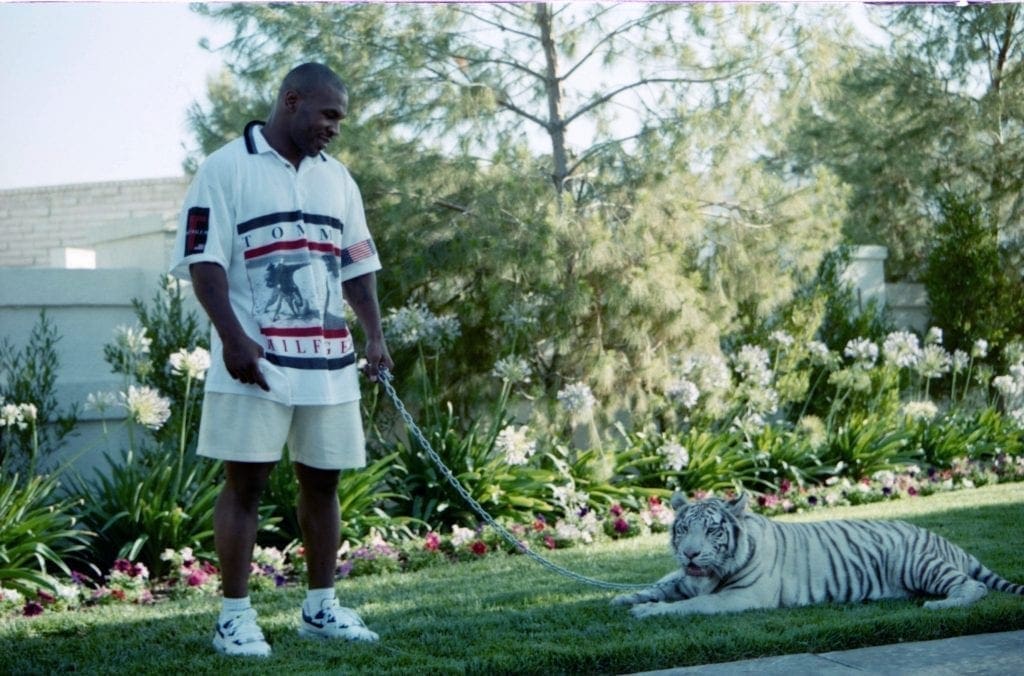Mike Tyson opened up to GQ about the reason why he had to sell Kenya, his famous pet tiger.
The former professional boxer and ‘baddest man on the planet’ reportedly paid $50,000 for Kenya, who lived with him for 16 years; even sometimes staying in his bedroom.
However, Tyson was forced to give up his beloved pet after she ripped somebody’s arm off. Further evidence, that tigers are not pets and are far better off in the wild than they are in somebody’s back garden.
Speaking with GQ Sports, Tyson, 53, said:
I did have a pet tiger, I had a great affection for her. I kept her, I slept with her, I kept her in my room. She stayed with me – I had her about 16 years.
But she got too old, and I had to get rid of her when her eyes and her head got bad. Oh, and she ripped somebody’s arm off.
Earlier this year, Tyson spoke out about his reason for buying such a dangerous animal during his appearance on The Joe Rogan Experience podcast.
He has owned three tigers before being forced to give them all up. He apparently decided to buy them on a whim after discovering he could trade his cars for them.

Speaking on the podcast, Tyson said:
This is really interesting. I’m in prison at the time. So I’m in prison, I’m talking to my car dealer at the time… and he’s discussing ‘if he doesn’t pay for these cars, I’m going to sell these cars to somebody and get some horses.’
I said ‘what, you can get horses? And trade horses in for cars?’ Because I had a lot of cars, I’d probably get some horses too.”
And he said ‘yeah man, you can get cougars, lions, tigers…’ I said ‘you do?! Can you get me some tigers?’
The guy said ‘imagine how cool that would be?’ Because I had a bunch of fancy cars, ‘imagine that man, you’d be in an Aston Martin or a Ferrari. You’d have a tiger right next to you, man. That’s be so awesome.’
And I’m a young guy. I’m saying to myself ‘wow, that would be cool. Get me some cubs, man.’
For anyone looking to get a new pet, probably best to stick to something smaller like a nice, small-toothed hamster perhaps.
SOURCE: UNILAD
